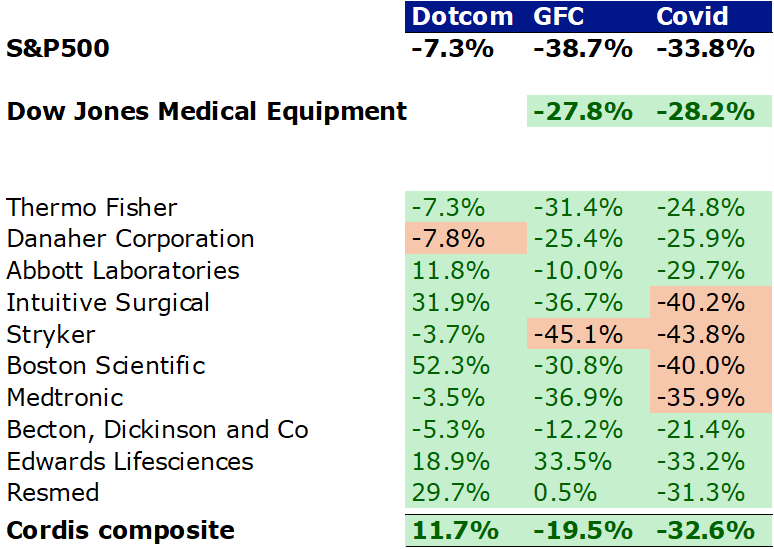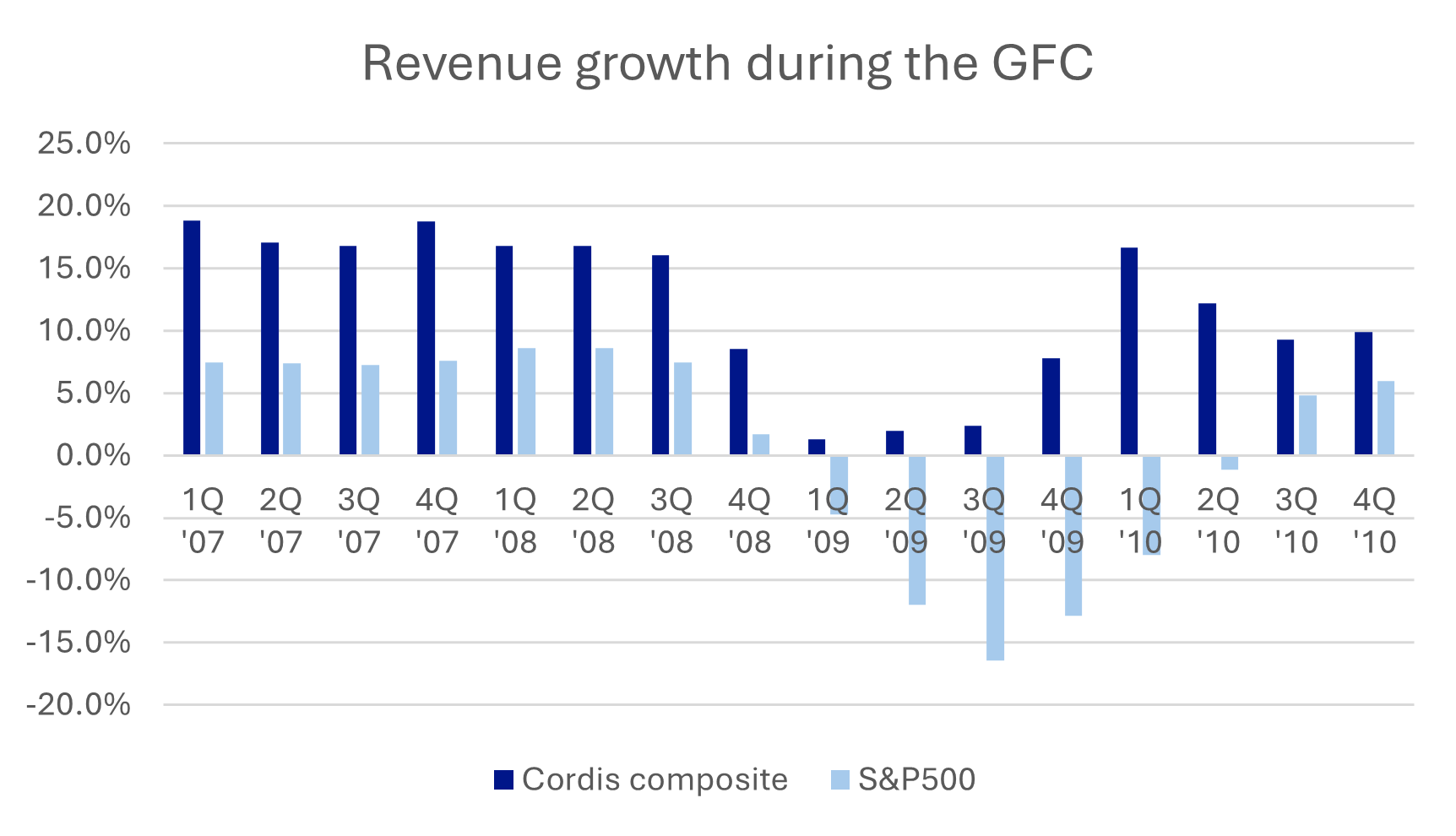A growth asset that can play defence as well
While we never try to predict the timing of recessions, market pullbacks or the weather for that matter, we do know that eventually dark clouds will gather and the best we can do as investment managers is to be prepared for it.
The challenge for investors is how to stay fully invested while protecting their portfolios from potential losses.
To address this challenge, we examined the performance of the medical technology sector during the three major bear markets of this century. By analysing the S&P 500 across these three events, we found that the medtech sector - and indeed the majority of companies in it – performed better during drawdowns. As a proxy for medtech, we used the Dow Jones U.S. Select Medical Equipment Index. However, since this index was only created in 2006, we couldn’t use the data for comparison in 2001.
We also back-tested the companies in our portfolio that were in existence throughout all three periods. Out of these 10 companies in our portfolio today, the rate of outperformance has been impressive.

Source: CapIQ and Cordis research
1. Dotcom crash; March – November 2001
When the internet bubble of the late 1990s burst in early 2000, it led to a severe economic downturn in the tech sector, characterised by significant job losses and widespread bankruptcies among internet companies. There was also significant carry-over effect to the broader economy, which was in recession throughout most of 2001. During this period, individual medtech names strongly outperformed the market due to the resilience of demand for their product.
2. GFC; October 2007 – June 2009
The GFC was triggered by the collapse of the U.S. housing market and the subsequent failure of mortgage-backed securities, leading to a severe credit crunch and a widespread banking crisis. This collapse saw a domino effect that threatened the stability of the global financial system. Across two years, there was a severe economic downturn and a sharp decline in asset values and economic activity across global economies. While the decline in asset values affected the highly rated medtech market, it was again the resilience in demand for medical interventions that allowed this sector to outperform the broad market.
3. COVID-19; February – March 2020
This was both the quickest drawdown and steepest recovery of these three global economic contractions. While medtech outperformed by the least in this bear market, the fact that it outperformed at all is worthy of note. After all, this was a healthcare-driven recession, where the hospital operating theatres in which medical technology is used were shut down. Despite these temporary shutdowns, the defensive and resilient characteristics of the sector allowed it to outperform again.
To illustrate the resilience of demand that we refer to, we also assessed the revenue growth of medtech vs the S&P500 throughout the GFC, which was the broadest and most drawn economic contraction of the three. It is this underlying business strength that is likely to hold up again in any recessionary environment. These management controllables are what we judge business performance on, rather than the external environment. In many cases, the management teams that we invest in have spent many years positioning these businesses for resilience against economic downturns and are in even better shape today than they were in 2007-09.

Cordis composite portfolio includes TMO, DHR, ABT, ISRG, SYK, BSX, MDT, EW, RMD, at equal weight
Source: CapIQ, multipl.com and Cordis research
It is our view that the relative outperformance displayed by medtech companies and indices is primarily a function of the category’s resilient revenues – after all, people get sick/injured regardless of the macroenvironment. The fact that this industry tends to operate in natural oligopolies drives strong earnings from revenue growth, supported by the pricing power evident in high growth margins across the portfolio. With all of this support, it becomes self-evident as to why an allocation to medtech has historically proven to be a relative outperformer in recessionary periods.
While we refrain from predicting when or if the economy will land in another recession, we take some comfort in knowing that medtech has historically reacted defensively.
4 topics
5 stocks mentioned

